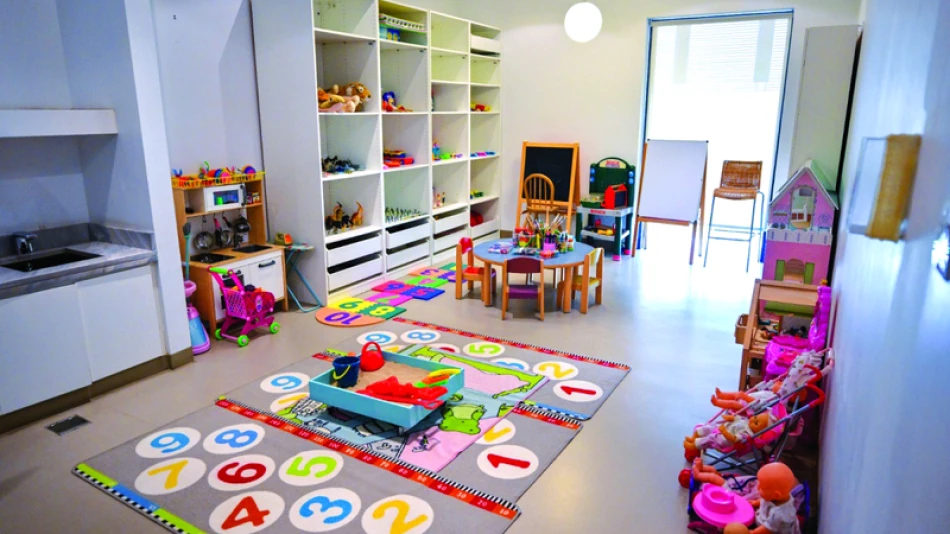
Dubai's Specialized Psychological Support for Women and Children: Tailored Counseling for Victims of Violence
Dubai's Women and Children Foundation: A Model for Trauma-Informed Care in the Middle East
Dubai's Foundation for Women and Children Care has emerged as a pioneering force in addressing domestic violence and child abuse across the UAE, serving over 14,000 cases since its establishment in 2007. The institution's comprehensive approach—combining psychological rehabilitation, family therapy, and community reintegration—offers a blueprint for trauma-informed care that could influence regional policies on victim support services.
Systematic Response to Crisis: Beyond Emergency Shelter
The foundation operates through a sophisticated case management system that begins the moment a victim contacts their 24-hour hotline (800111) or reaches out via WhatsApp and social media platforms. According to psychological counselor Sheikha Al-Awadi, each case receives immediate classification and assignment to a dedicated case manager who develops individualized support plans.
This systematic approach reflects a broader shift in how Gulf states are professionalizing their social services. Unlike traditional charity-based models, the foundation employs evidence-based practices that prioritize long-term rehabilitation over temporary relief.
The Numbers Tell a Story
Since 2007, the foundation has handled 14,116 cases, with 1,625 requiring residential shelter services and 12,491 receiving outpatient support. Their call center has processed nearly 75,000 reports—figures that suggest domestic violence remains a significant but often hidden challenge in one of the world's most prosperous regions.
Innovation in Therapy: From Play Rooms to Pet-Assisted Treatment
The foundation's therapeutic facilities showcase how traditional counseling methods are being adapted for diverse cultural contexts. Specialized rooms cater to different age groups and trauma types, including play therapy spaces for children aged 3-12 and family therapy rooms designed to rebuild damaged relationships.
Particularly noteworthy is their use of animal-assisted therapy, a relatively new approach in the Middle East that has shown effectiveness in treating post-traumatic stress disorders. This willingness to embrace innovative treatments suggests Dubai's social services are looking beyond regional precedents toward global best practices.
Addressing Complex Trauma in Children
Children who have experienced abuse often present with panic attacks, depression, and social interaction difficulties—symptoms that require specialized intervention. The foundation's child-focused approach using role-playing, drawing, and sandbox therapy represents a sophisticated understanding of developmental trauma that was largely absent from regional social services a generation ago.
The Economic Logic of Comprehensive Care
From a policy perspective, the foundation's model makes economic sense. By investing in intensive rehabilitation and follow-up services—including check-ins at 30, 90, and 180 days post-treatment—Dubai is likely reducing recidivism rates and long-term social costs. This contrasts with jurisdictions that focus primarily on crisis intervention without addressing underlying trauma patterns.
The foundation's emphasis on vocational training and community reintegration also aligns with Dubai's broader economic strategy of maximizing human capital utilization across all population segments.
Regional Implications and Future Challenges
As the first licensed non-profit organization of its kind in the UAE, the foundation serves as a proof-of-concept for other Gulf states grappling with modernization's social complexities. Saudi Arabia's Vision 2030 and similar reform programs across the region could benefit from Dubai's integrated approach to victim services.
The foundation's commitment to serving victims "regardless of gender, class, race, religion, or legal status" is particularly significant in a region where legal residency often determines access to government services. This inclusive policy could influence broader discussions about social safety nets for expatriate populations across the Gulf.
Looking Forward
The foundation's success in handling diverse cases—from domestic violence to human trafficking—positions it as a regional center of expertise. As other Emirates and neighboring countries develop their own victim support systems, Dubai's model offers both practical frameworks and evidence of what's possible when governments prioritize comprehensive trauma care over traditional approaches to family conflict resolution.
The real test will be whether this model can scale beyond Dubai's unique economic and administrative environment to influence broader regional policies on domestic violence prevention and victim support services.
Most Viewed News

 Sara Khaled
Sara Khaled






